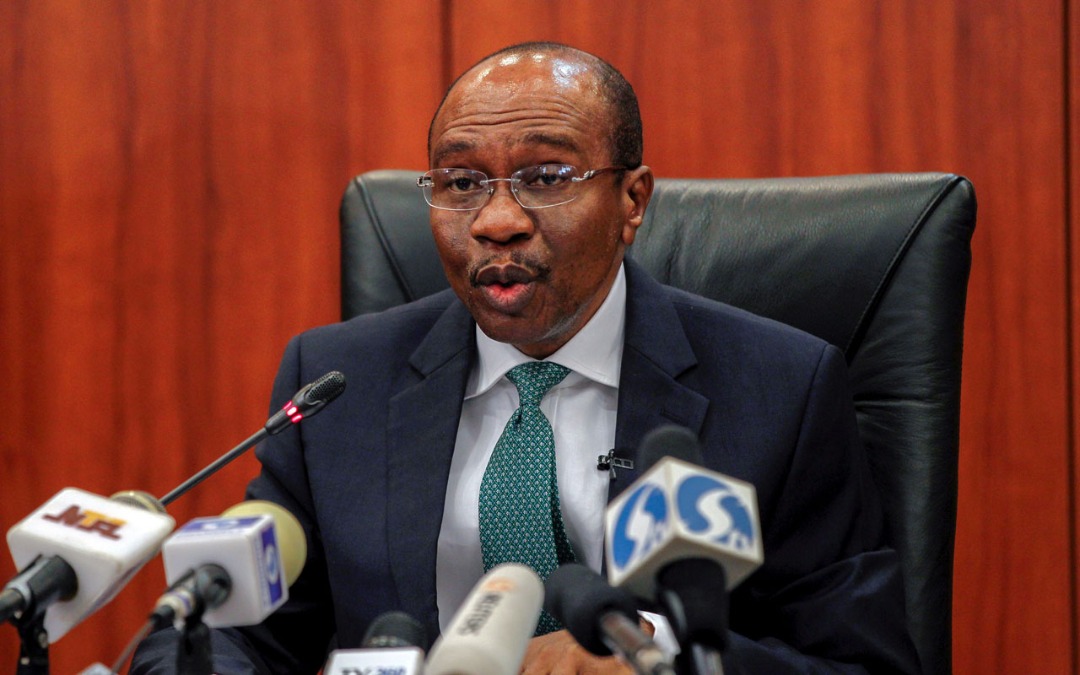Nigeria: Naira Shows Stability Amidst Fresh $190m Injection, Rising Investors' Confidence - allAfrica.com
The naira remained stable in the various markets amidst the latest interventions of $190m, with experts concluding that the stability is boosting investors' confidence, Daily Trust can report.
The local currency, despite global and domestic headwinds, has maintained a positive outlook and stability in recent months.
The stability and reduced volatility of the local currency follow Central Bank of Nigeria (CBN) reforms that brought efficiency in the management and operations of the FX market.
Aside from a drop in daily fluctuations, the exchange rate has continued to moderate significantly, signaling growing market confidence and increased transparency in FX operations.
Despite geopolitical tensions and tariff wars ravaging some economies and their currencies across the world, the naira has continued to maintain measured stability.
After beginning the year on a strong note, it came under significant pressure, depreciating from N1,475/$ at the end of January to N1,598/$1 at the official markets. At the parallel market, the local currency exchanges around N1,605/$, indicating a narrowing gap between official and parallel market rates.
With occasional interventions, including the recent injection of $190.4 million, analysts said the naira is likely to stay stable in the short term, as global pressure remains contained amid easing trade tensions.
A broader comparison with 2024 performance shows the naira has shown relative resilience and stability in the face of global headwinds and domestic pressures.
In an emailed note to investors, Head of Research at Commercio Partners, Dr. Ifeanyi Uba, explained that in defending the naira's performance, CBN governor, Yemi Cardoso, argued that Nigeria's currency fared better than many peers during this period of uncertainty.
"Despite this, there's a silver lining: the CBN's foreign exchange reforms are clearly yielding results. One of the most notable successes has been the reduction in exchange rate volatility. Although the naira has depreciated, it has done so in a more orderly and predictable manner," he said.
He further stated that the gap between the official and parallel market rates remains narrow, a significant departure from the sharp discrepancies seen in previous years.
"Daily fluctuations in the exchange rate have also moderated significantly when compared to 2024, signaling growing market confidence and increased transparency in FX operations. This improved stability is not just a statistical detail, it matters deeply to investors. Exchange rate volatility is a major risk consideration for foreign investors looking to enter any emerging market," he said.
"As Nigeria continues to rein in this volatility, it enhances its attractiveness as a destination for foreign capital. Should these reforms persist and deepen, they may lay the groundwork for a more sustainable and investment-friendly FX environment, potentially setting the stage for renewed inflows and a more stable naira in the long run," he added.
Already, Nigeria's sovereign risk spread has fallen to the lowest level since January 2020, erasing the premium accumulated during the pandemic and subsequent strain on its economy.
While US President Donald Trump's widening trade war has taken emerging markets on a wild ride, Nigeria has quietly held its own, attracting foreign capital reassured by currency reforms and other measures designed to revive the economy of Africa's most populous nation.
"Nigeria appears to be back in business as long-awaited economic reforms take shape," said Emre Akcakmak, portfolio manager at East Capital. Key measures include improved currency liquidity, leeway for investors to repatriate their profits, and a stable naira.
"We feel the Central Bank of Nigeria will continue to stem any sharp appreciation of the naira to limit profit taking from the fast money community," Akcakmak said.
"Portfolio inflows have likely been supported by improved confidence amid key structural reforms, better FX market functioning and moderating dollar-naira volatility, as well as the still-robust nominal yield buffer," Samir Gadio, Head of Africa strategy at Standard Chartered Plc, told Bloomberg.
"Besides, Nigeria's local market is seen as less correlated with global risk conditions than more liquid EM peers," he said.
Yields on Nigeria's $1.5 billion Eurobond due in 2034 have declined to 9.69 per cent, the lowest since its early December launch, and a domestic debt auction was three times oversubscribed recently, with the Open Market Operation bills allotted at 21.45 per cent versus 22.65 per cent.
Olayemi Cardoso, CBN governor, expressed strong optimism that measures being deployed by his administration will deliver benefits that would be felt by every Nigerian in no distant time.
He said the need for reassurance on the expected outcomes from policy measures being deployed by the CBN was necessitated by the growing pains of Nigerians due to the further deterioration of key macroeconomic variables (notably, inflation and exchange rate) that are within the purview of the monetary policy authority relative to when he assumed office last year September.
Cardoso, over time, prioritised stabilising the exchange rate, curbing inflation, strengthening banks' capital buffers, and fostering an environment conducive to the success of both businesses and individuals.
Ike Chioke, Managing Director, Afrinvest West Africa Limited, said the liquidity supply boost provided by Nigeria's successful pricing of $2.2 billion in Eurobonds recently significantly boosted the exchange rate position against the dollar. We anticipate the naira to regain more ground against the dollar, driven by aforementioned factors," he said.
He listed other key policies of the apex bank that supported the naira rally as the clearance of the $7bn FX backlog and resumed sales of Open Market Operation (OMO) bills to Foreign Portfolio Investors (FPIs) at market reflective rates.
CBN's policies, including the exchange rate unification, have led to significant foreign capital inflows to the economy while reducing its intervention in the forex market.
The floatation of the naira and the clearing of over $7bn FX backlog improved the country's outlook with foreign investors as well as multilateral organisations, like the World Bank, describing it as a bold intervention to improve the economy's sustainability in the long run.
Uba added that after a challenging start to the year, Nigeria's external reserves position has begun to show signs of recovery--an encouraging development that reflects not only changing market dynamics but also the CBN's strategic efforts to restore confidence in the economy.
"While early 2025 saw some drawdown in the reserves due to heightened demand for foreign exchange--driven by debt servicing obligations, import-related FX needs, and direct CBN interventions--the tide began to turn from late April," he said.
As of May 16, Nigeria's external reserves stood at approximately $38.9 billion, a level the CBN noted is sufficient to cover 7.6 months of imports for goods and services.
This turnaround in reserve accumulation coincided with a major vote of confidence from the international financial community. In April, Fitch Ratings upgraded Nigeria's Long-Term Foreign-Currency Issuer Default Rating from 'B-' to 'B', maintaining a stable outlook.
What makes this upgrade especially significant is its timing--coming at a moment of intense global uncertainty, with rising U.S. tariffs and widespread investor caution clouding emerging markets. That Fitch proceeded with an upgrade under such conditions sends a powerful message: Nigeria's ongoing economic reforms are being taken seriously.
This recognition has not come from Fitch alone; several external institutions have similarly acknowledged Nigeria's improving macroeconomic outlook. A key pillar of this restored confidence lies in the CBN's effort to improve transparency and credibility, particularly among foreign investors, who have long harbored concerns about data opacity and policy unpredictability.
Meanwhile, the rebound in external reserves, improved transparency from the apex bank, and a renewed push to engage the diaspora are laying the groundwork for sustainable capital inflows and a more resilient economic structure. This is not just a moment of recovery, it is a moment of recalibration.
Nigeria is proving that with disciplined policy, institutional accountability, and strategic vision, even the most daunting economic challenges can be met with confidence. The road ahead may still be complex, but the direction is finally pointing toward progress, and the world is beginning to take notice.

Sign up for free AllAfrica Newsletters
Get the latest in African news delivered straight to your inbox
It would be recalled that Cardoso explained that in light of these global challenges, it is imperative to sustain and enhance reforms aimed at strengthening our economic buffers to withstand external shocks. This requires a steadfast focus on curbing inflation, ensuring fiscal discipline, and advancing initiatives that promote greater economic diversification.
"Upon assuming office in October 2023, we prioritised reforms to rebuild Nigeria's economic buffers and strengthen resilience. Inflation, which had surged to 27 per cent, was one of the most pressing challenges, partly driven by excessive money supply growth. While our GDP growth had stagnated at a meagre 1.8 per cent over the previous eight years, money supply expanded rapidly, averaging about 13 per cent growth annually," he stated.
Meanwhile, Nigeria's economy is already exiting the most painful phase of the reform adjustment process in 2025, Bismarck Rewane, Managing Director, Financial Derivatives Company Limited, predicted.
Rewane projected that the economy would begin to recover from the toughest phase of its reform adjustments this year, emphasising the importance of strategic policy implementation and institutional reforms.
He noted that while the fundamentals of Nigeria's exchange rate indicate that the naira should be stronger, achieving stability depends on an efficient and effectively managed FX system. He stressed that the primary challenge lies not in the reforms themselves but in their management, citing poorly sequenced policy changes and insufficient structural reforms as significant obstacles.
He underlined the critical role of investment in driving economic growth, saying, "Revenue alone is not enough."
"Investment is key, but it will be influenced by confidence, transparency, and the right policies."
He also called attention to persistent challenges such as power supply inefficiencies and the lack of transparency in the oil and gas sector, which require immediate attention through structural reforms.








